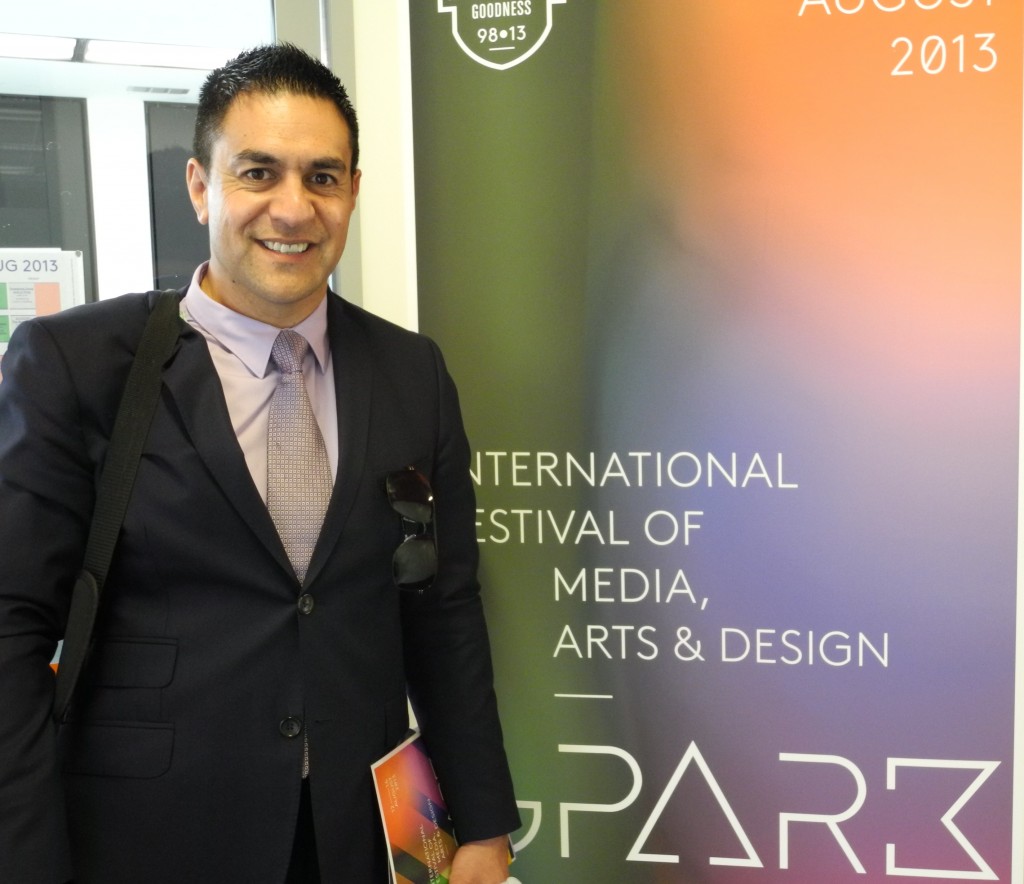Journalist Julian Wilcox tells his story
Julian Wilcox spoke at Spark Week to share how he tells the stories of his kaupapa.
Julian Wilcox is on a life mission to develop Maori broadcast and journalism.
Wilcox, known for his front-of-camera role as presenter on Maori television’s documentary programme, Native Affairs, was recently promoted to General Manager of news and current affairs.
He admitted he preferred his new role over presenting as it offered the opportunity to revitalise Māori journalism, even though the job is not easy and the financial aspect not great.

“If you want to be in Māori broadcast or [practise] Māori journalism, it’s about the life mission,” he said.
Wilcox’s presentation at this week’s SPARK festival provided the audience with short videos from the Māori Television programme, Native Affairs.
He discussed the programme’s treatment of the death of Anthony Ratahi , who was shot by police.
The video showed the body of the Ratahi, but with permission of the family and with careful adherance to tikanga protocols.
This kind of story was what he said he wanted to tell “for the kaupapa”.
“It’s important to see the difference or there is no point in us being in the job at all,” he said.
Wilcox’s passion for the Maori language started when he learnt Te Reo Māori from his aunty while his friends were at the pub.
Part of his inspiration to become a journalist centered on an ancestor, Maihi Paraone Kawiti, a Māori chief in the north, who was buried and later had his head cut off and taken.
“I wanted to be able to tell the story,” he said.
But Wilcox did not want to stop there. “You find yourself wanting to tell more and more stories.”
His main determination was to tell the story of his people as he was “hōhā” ( fed up) with mainstream media telling Māori stories.
“We weren’t celebrating our own successes – it’s about ensuring our voices are heard.”
Wilcox said he is enjoying being in a manager’s position to help move Māori television forward.
Audience member Era Peihopa said it was good to see Te Ao Māori incorporated in the media.
“I found it interesting when he spoke toward Tikanga being a guiding principle as a Māori journalist,” Peihopa said.




